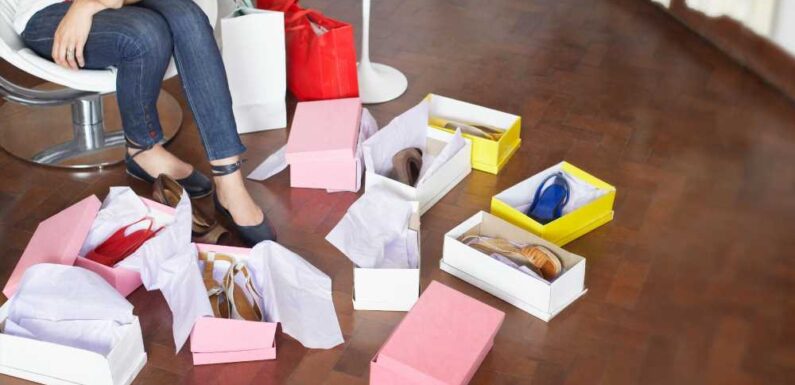
WHAT goes around, comes around as far as fashion trends are concerned.
And to the joy – or dismay – of many, the early noughties' most recognisable shoe is back in the running.
That's right – ballet flats have made their comeback. Seen on Fashion Week runways and TikTokers alike, it seems to be the season's 'it' shoe.
Many of us who remember ballet flats' heyday not so long ago might also recall how the dainty little shoes could leave our feet aching after just a few hours.
But you might push that memory aside to keep up with the fashion masses.
It's worth heading the warnings of podiatrists, who've long waged war against the shoe.
Read more on shoes and health

I'm a podiatrist – 3 shoes I would NEVER wear & what to try instead

I’m a foot doctor – here are the WORST summer shoes for your health
Their name actually gives you a clue about why foot specialists dislike them – they're too 'flat'.
Podiatrist Saylee Tulpule said ballet flats tend to offer no arch support for your feet.
“This lack of support can lead to common foot issues such as plantar fasciitis and can aggravate flat feet or joints in the midfoot,” she told Yahoo Life.
Plantar fasciitis is caused by straining the part of your foot that connects your heel bone to your toes and can happen if you wear shoes with poor cushioning or support, according to the NHS.
Most read in Health

The 4 signs your ‘sore throat’ is dangerous – as A&E visits surge 77%

Daughter’s pain as dad, 81, kills himself after dental surgery left him in agony

Eight ways to sharpen your brain from simple card tricks to clever app

I just celebrated my 107th birthday – here’s my secret to a long life
The condition causes pain on the bottom of your foot and around the heel and arch.
It's likely you have plantar fasciitis if:
- The pain is much worse when you start walking after sleeping or resting
- The pain feels better during exercise, but returns after resting
- It's difficult to raise your toes off the floor
See a GP if the pain is severe or keeps coming back, the NHS recommends.
Podiatrist Jason Gold told the outlet that flats’ minimal cushioning and lack of straps or laces can cause shin splints, stress fractures, bunions, blisters and tendonitis.
The part of the shoe that your toes sit in – called the toe box – doesn't leave you much wiggle room.
Saylee said this can make your toes cramp up and leave them numb.
You can also get something called hammertoes – when your second, third or fourth toes bend to resemble a hammer – or even thickened toenails, the podiatrist added.
Saylee said a good supportive shoe should tick these three boxes:
- A spacious toe box that provides plenty of wiggle room
- A low block heel that lifts the arch and reduces tension
- Soft, comfortable materials like pliable leathers that can make shoes easier to break in and expand on wide feet.
Say you do go for a ballet flat – Saylee posted a video on Instagram to help you figure out what kind of shoe is likely to cause less damage.
Showing herself handling two different pairs, she advised you "do the twist test".
This involves folding and twisting the ballet pump at the middle to "make sure the flat is more firm then flexible".
"This will give you additional support, which is better for flat feet, heel pain, or tendonitis," Saylee explained.
Read More on The Sun

DIY chain with 153 stores to shut more shops – it sells 'the best' Xmas decor

Love Island legend hints she's returning to villa for a THIRD time for All Stars
She also advised going for a ballet pump with a small block heel.
"This supports the Achilles tendon and plantar fascia better than one without a heel," she added.
Source: Read Full Article
